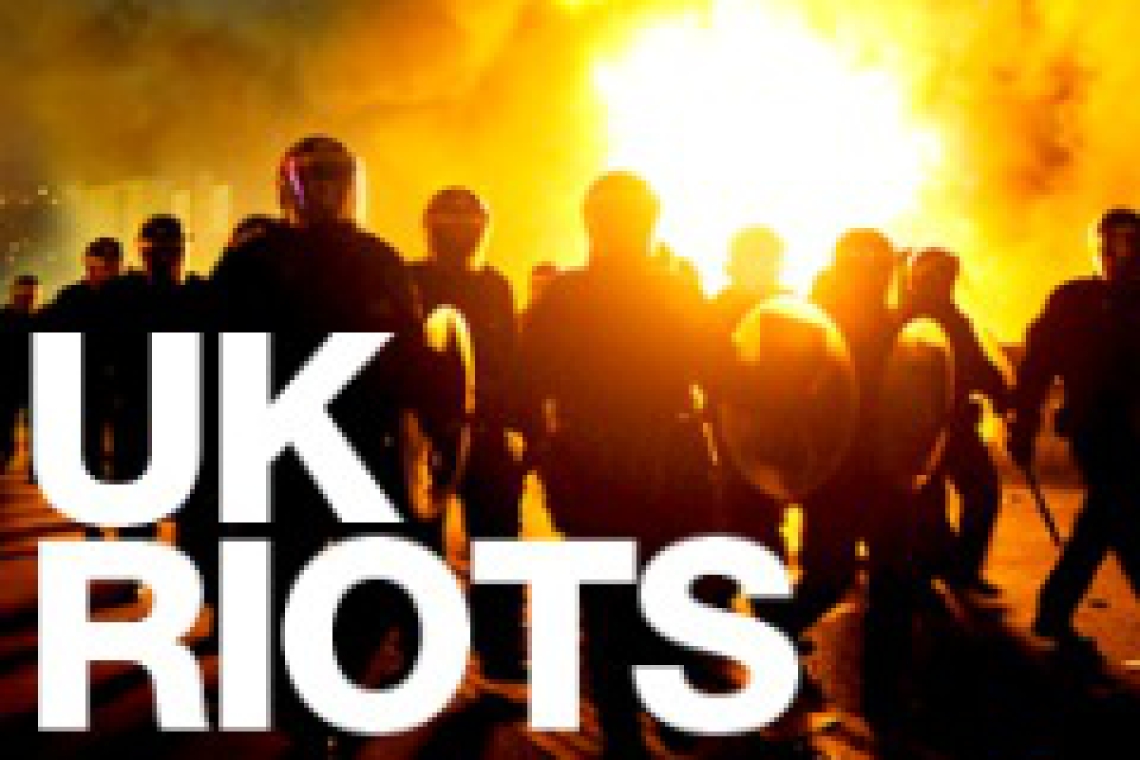David Cameron, the British prime minister, has warned rioters and looters that they face arrest and imprisonment as he outlined tough measures to tackle the country's worst unrest in decades.
Cameron hosted a second meeting of the government's crisis committee, COBRA, on Wednesday after a fourth night of riots which saw trouble spread to more English towns and cities and a heavy police presence on the streets of London to keep a lid on disorder.
Police had been authorised to use baton rounds, while contingency plans had been made for the use of water cannon in tackling further riots, he said.
"We will do whatever is necessary to restore law and order onto our streets," Cameron said. "Nothing is off the table."
Cameron said that increased police presence on the streets has resulted in more people being arrested, charged and prosecuted and said more detentions would follow.
Police have made 1,069 arrests across the country in response to the trouble, including 768 in London, 109 in the West Midlands and 90 in Nottingham. At least 167 people have been charged so far.
"Today, major police operations are under way, as I speak, to arrest the criminals who were not picked up last night but who were picked up on CCTV," he said.
"Picture by picture these criminals are being identified and arrested and we wil not let any phoney concerns about human rights get in the way of the publication of these pictures and the arrest of these individuals."
London was mostly quiet after a huge boost in police numbers on Tuesday evening which saw 16,000 officers on the streets, compared to the 6,000 out on Monday night.
But the unrest spread to other cities including Manchester in the northwest and Birmingham, Britain's second biggest city, where three men died after being hit by a car during riots, officials said.
Police said they had arrested a man and launched a murder inquiry after the incident which happened at 00:00 GMT just as the men came out of a mosque and were protecting their neighbourhood during the riots.
'Culture of fear'
A gang of up to 40 men firebombed a police station in the central English city of Nottingham, on Tuesday evening, but no injuries were reported, police said.
Cameron made it clear that anyone convicted of violent disorder would be sent to prison.
"This continued violence is simply not acceptable and it will be stopped. We will not allow a culture of fear on our streets."
Cameron spoke of the need to have stronger penalties, better parenting and the importance of having better discipline in schools.
"There are pockets of our society that are not just broken but, frankly, sick... when we see children as young as 12 and 13 looting and laughing, when we see the disgusting sight of an injured young man with people pretending to help him while they are robbing him, it is clear there are things that are badly wrong in our society," he added.
The crisis committee will meet again on Thursday, when Cameron is also due to address a special session of parliament, which has been recalled from its summer recess.
Cameron asserted that the priority was to take every action necessary to restore order.
Defending the government's and the police's response to the rioting and looting, he said that, "We've been dealing with something that's new. Different people doing the same thing at different places has been a new challenge. We have to learn the lessons, police tactics will have to change."
Al Jazeera's Tim Friend, reporting from Downing Street, London, said that the possible use of water cannon and baton rounds on English streets marked a major escalation in the government's response to the unrest.
Water cannon have previously only been used in Northern Ireland, where Irish nationalists waged a decades-long campaign against British rule.
"These were extraordinarily strong words, he has gone further in the degree of assertiveness. It would be the first time such arsenal would be used on mainland Britain," our correspondent said.
Source:
Al Jazeera


